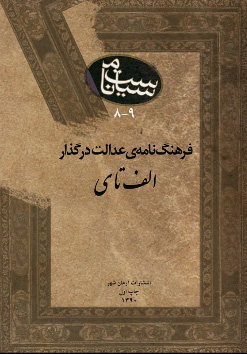By DANN MWANGI
Truth, Justice and Reconciliation Commission ( TJRC) of Kenya was set up in 2008 to help address fundamental injustices that had bedeviled the Kenyan society from 12th December 1963 to 28th February 2008.
However, the TJRC chose, for no apparent reasons to delve into other matters that happened before 1963 and after 2008. Such commissions are primarily formed by societies that are emerging from conflict, just like the post-election conflict we faced in 2007/2008.
In the period between 1974 and 2009 over thirty truth commissions have been formed in different countries around the world with quite a number of them being setup in African countries.
In fact, even the Narc government had pledged to establish its own truth commission by the end of 2004 but with the persistent wrangles during that period, this aspiration was not achieved.
Nevertheless, truth commissions are critical and especially for societies emerging from conflict as they help to establish effective national mechanisms to document the truth about the crimes.
They are a common fixture of newly democratic states with repressive or strife-ridden pasts and therefore the role they play in reconstructing a society based not only on truth, justice and reconciliation cannot be belittled.
With this background, it is important that we interrogate the effectiveness or lack thereof of the Kenyan TJRC even before we go to the implementation stage.
Lara Anne, in her thesis, Moral Foundations of Truth Commissions in Theory and Practice, has emphasized that the normative treatment of truth commissions requires engagement in philosophical inquiry into the moral dimensions of the commissions questioning under which circumstances they may be morally justifiable.
In my view, the formation of TJRC was morally justifiable but sadly, the working of TJRC and its report findings cannot meet minimum standards of moral justifiability and societal acceptance.
I say this because the TJRC report is the first of its kind in the world which even its chairman, Bethwel Kiplagat is adversely mentioned and seems to lack faith in it.
From its inception, TJRC faced serious conflict of interest among commissioners and persistent wrangles which led to the Vice Chair Betty Murungi resigning. Shortly, some commissioners removed the chairman who had to be reinstated by the High Court and this lack of leadership and directionless in TJRC did not stop there.
Also, Commissioner, Prof.Ronald Slye resigned and up to today, it’s not clear why he resigned and whether he was ever reinstated.
This trend made TJRC lose direction, public confidence and faith as the commissioners seemed to have interests that run contrary to the interest of its philosophical foundation and were playing political war games within and outside the commission.
Historical truth
These wrangles did not augur well for the commission as lack of trust by the public has greatly watered down the credibility of the report and made the public lose enthusiasm for the report.
The continued lack of visionary leadership inTJRC made it fail to learn from the Salvadorian commission of truth which many scholars have regarded to be a “classic commission” for its notable numerous successes and failures.
This lack of leadership in TJRC also extended to lack of intellectual and evidential honesty as whereas TJRC was supposed to establish the truth, it admits in the report that it could not establish a historical truth and, therefore, what they have given the public may easily be discussed as hearsays or a copy and paste of other commissions’ reports.
With these occurrences in mind, TJRC and its report fails a basic test of commission’s moral foundations and history will never be kind to this truth commission.
They had a great opportunity to transform and rejuvenate Kenya through truth and offering avenues of justice and reconciliation but in its current form and substance, TJRC report may not address injustices.
Its entire working and report is a pale shadow of the much celebrated South Africa truth commission which largely conducted its role with great credibility and earned both the trust and confidence of not only South Africans but many countries of the world.
As Guttmann and Thomson have stated in the moral test of commissions, they should not just have morality in perspective and principles but also morality in practice.
By morality in practice, they envision a commission that itself, proceedings, staff and so forth, embodies the moral value justification as much as possible which unfortunately Truth commission was unable to adhere to
The writer is a lawyer

